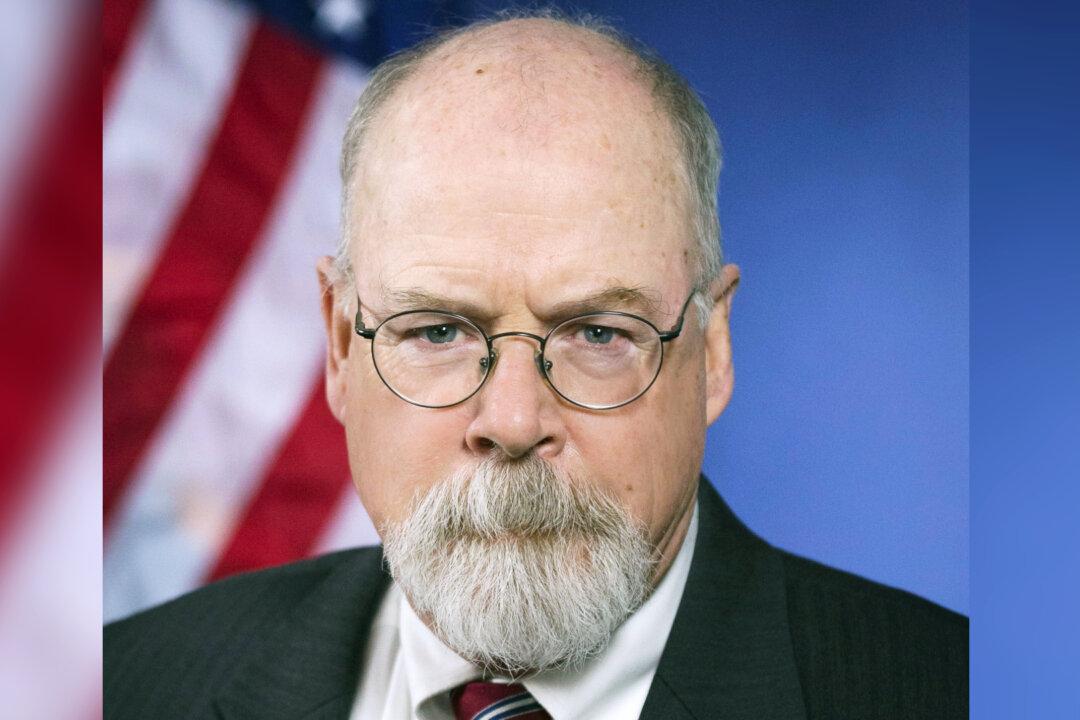Special counsel John Durham, who is probing the origins of the counterintelligence investigation against Donald Trump’s campaign, filed late Thursday a response to former Hillary Clinton campaign lawyer Michael Sussmann’s motion to strike six paragraphs from Durham’s case against him.
Sussmann filed a motion (pdf) on Feb. 14 to strike six paragraphs that comprise the “Factual Background” section in Durham’s filing on Feb. 11.




